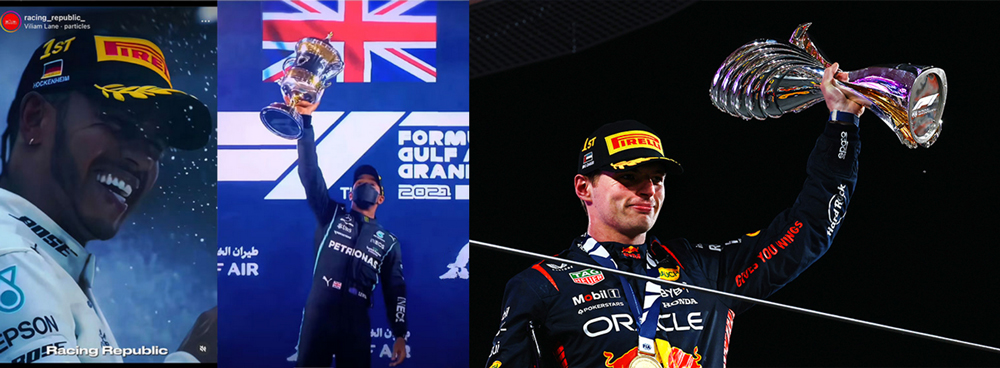Sergio Pérez's Red Bull journey ends in disappointment
Pérez and Red Bull Confirm Separation
On Wednesday, Pérez and Red Bull confirmed their separation, concluding weeks of negotiations over his exit from the race seat. Red Bull junior driver Liam Lawson is expected to fill the vacancy left by Pérez.
Options for Pérez: Ambassadorial Role or Complete Separation
Pérez, also known as "Checo," faced two options: remain with Red Bull for at least one of the two years in his contract extension signed in May—and assume an ambassadorial role—or completely sever ties with the team. Ultimately, both parties opted for a complete separation, a decision underscored by the tense negotiations, evident from their delayed joint announcement.
Reflecting on Pérez’s Journey with Red Bull
The announcement echoed four years to the day since Pérez's signing with Red Bull in 2020, shortly after his maiden F1 victory at the Sakhir Grand Prix. That win, which came after a record 190 races, heralded a new chapter for one of the grid’s unheralded talents in a competitive car.
Pérez’s career saw a rocky period in 2013 when he left the Ferrari driver academy for McLaren, only for the move to unravel after a single season. The subsequent Red Bull opportunity was seen as his redemption. However, four years later, his standing in the sport is tarnished and his immediate future is uncertain, though his marketability in North America might draw interest from the incoming Cadillac team slated to join the F1 grid in 2026.
"Checo started the season so strongly, four podiums out of five races. It felt like he'd taken off where he'd left off last year," commented Red Bull Team Principal Christian Horner. "But then really from Monte Carlo, that race onwards, it's been a very tough year for him, and we've tried everything with him and supporting him and basically he's come to his own conclusion that I think that now is the right time to step away from Formula 1 to take a bit of time out."
Pérez’s Struggles in the 2023 Season
Despite Pérez inking a two-year contract extension earlier in the year, he failed to secure another podium thereafter. His promising early-season results, such as second-place finishes in Bahrain, Saudi Arabia, and Japan, along with a third-place finish in China, did not sustain. A significant drop in form coincided with McLaren's emergence as a strong rival.
Pérez's downturn began with an expensive crash at the Monaco Grand Prix, followed by another mishap in Canada. This led to mounting internal tensions within Red Bull, further exacerbated when senior engineers expressed dissatisfaction after his 19th-place qualifying performance at the British Grand Prix.
Internal Changes and Rumors
Attempts to rectify Pérez’s struggles, including changes in race engineers, proved futile. The narrative surrounding his position fluctuated with rumors and complications; even potential replacements like Daniel Ricciardo failed to solidify their standings due to their own inconsistencies.
As newfound challenges arose, including Verstappen’s struggles with the car's handling, Pérez's form never rebounded. Verstappen's ability to maximize the car's potential only highlighted the performance disparity.
Decision on Lawson and Team Dynamics
Red Bull's decision-making process involved considerable deliberation. While there was internal debate about promoting Lawson or considering other drivers like Yuki Tsunoda, the team ultimately valued its tradition of fostering internal talent, a practice revered by Red Bull’s founding ethos.
Stalled Negotiations and Final Exit
Discussions with Pérez about transitioning him to an ambassadorial role while preserving his dignity and financial terms stalled. Though publicly denied by Pérez’s camp, exit talks had already reached advanced stages by the season’s end.
In the closing chapter of the 2023 season, Pérez’s performance failed to provide the turnaround Red Bull hoped for, culminating in his exit from the Abu Dhabi Grand Prix. His public acknowledgement of departure talks only came after the race.
Future Prospects for Pérez and Red Bull
A hiatus may serve Pérez well. With six career victories and a previous solid reputation, his name will likely reappear in the 2025 driver market. As Red Bull looks to the future with Lawson, preserving the young driver's potential will be paramount to avoid repeating past pitfalls.
Pérez's exit underscores the high stakes and pressures inherent in Formula 1, where even seasoned talents must continually prove their worth to survive in a fiercely competitive environment.
Up Next



